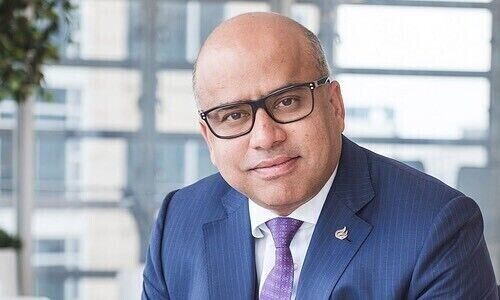Fund Woes Unmask Credit Suisse «One-Bank» Client
Before Sanjeev Gupta's business was the largest outstanding debtor to the Credit Suisse-Greensill funds, he reportedly enjoyed the Swiss firm's full «one-bank» treatment.
British steel investor Sanjeev Gupta maintained financial ties to several arms of the Zurich-based bank, the «Financial Times» (behind paywall) reported on Friday, citing «a string» of unnamed former Credit Suisse executives. The Swiss bank now seeks $1.2 billion from Gupta following the collapse of a $10 billion line of supply chain funds.
The report shows how Gupta, a British investor who amassed industrial assets across the U.K., Europe, and Australia in recent years, was given top billing at Credit Suisse including face time with ex-CEO Tidjane Thiam and a visit to St. Moritz's annual White Turf polo tournament last year.
Luxury Home Financing
Specifically, Credit Suisse financed the mortgage for Gupta to buy an Australian $25 million ($19 million) luxury home in Sydney through an intermediary, the outlet reported and appears to have otherwise sold wealth management services to him, through its Australian private bank.
It also issued a letter of support to Gupta as he was seeking debt financing to buy Thyssenkrupp's steel unit last year (the deal fell apart in February). Credit Suisse's investment bank was extremely keen to do business with GFG, the loosely linked group of companies controlled by Gupta.
Plea Not To Pull Plug
The Swiss bank is mired in crisis due to the collapse of Greensill and Gupta, one of the U.K. supply chain financier’s biggest clients. An Australian steelworks controlled by Gupta is the largest debtor to the Credit Suisse-Greensill funds. The bank faces potential legal action from clients nursing losses on the funds.
As with Lex Greensill, founder of the eponymous, collapsed supply chain finance firm, Credit Suisse's relationship with Gupta soured as well. Gupta went from VIP guest at the St. Moritz polo tournament last February to pleading, in person in Zurich, earlier this year for the bank not to pull the plug on the funds, the «FT» reported.
Conflicting Ambitions
The Swiss lender’s management has stuck to a «one-bank» it set up in 2005 out of Solution Partners, a team of former investment bankers-turned-wealth managers overseen by capital markets veteran John Zafiriou. Credit Suisse’s performance over the years has been volatile with the occasional blow-up.
Its ambitions to play in the top-tier of Wall Street banks hasn’t sat well with its growing aspirations in wealth management in recent years. The conflicts of interest inherent in «one-bank» for entrepreneurs is embodied by Greensill – and now by Gupta.
Missed Warnings
With the duo, the bank appears to have missed cues and warnings from its own bankers, from commodities trader Trafigura which questioned invoiced provided by Gupta companies, by regulators including Bafin and the Serious Fraud Office, and by media coverage led by the «FT».
Like Greensill, Gupta is the type of client that would seem to fit well into Credit Suisse's «one-bank» strategy: an aggressive dealmaker constantly seeking financing, whose business was making them rich enough to need sophisticated, customized personal finance advice.
Asian Focus
This is a repeat pattern, including Lex Greensill, who Credit Suisse lent $150 million just months before his company collapsed, Luckin Coffee founder Lu Zhengyao, and reportedly Softbank CEO and founder Masayoshi Son.
The «FT» lays much of Credit Suisse's pursuit of Gupta at the feet of Asia boss Helman Sitohang and Australian ultra-high net worth head Shane Galligan. Neither the bank, which is also grappling with $5 billion in Archegos fallout, nor Gupta commented to the paper.
Personal Pursuit
Credit Suisse ended up enlisting Kroll, which is a private investigation firm specializing in corporate business, to track down Gupta's far-flung assets. This is because Gupta had given personal guarantees to Greensill against his debt lines, the outlet reported.
It is not the only Swiss financial institution involved with Gupta: The Swiss unit of U.K.-based Barclays Bank granted the industrial investor a mortgage which was used to buy a Belgravia townhouse worth £42 million ($59 million) last August.


























